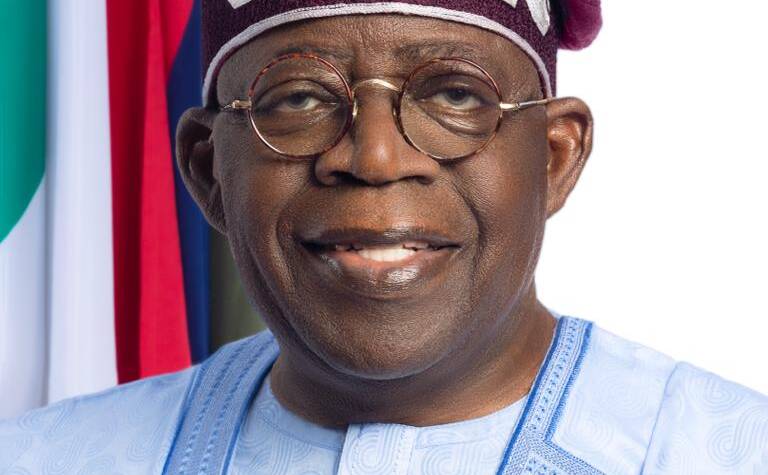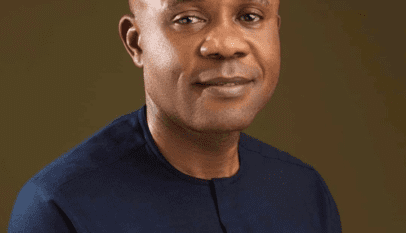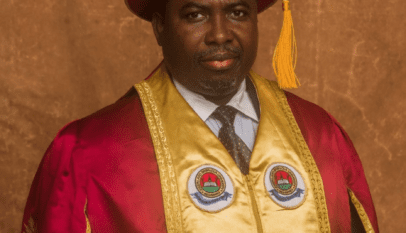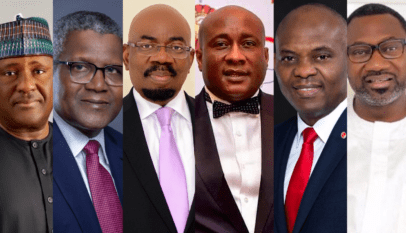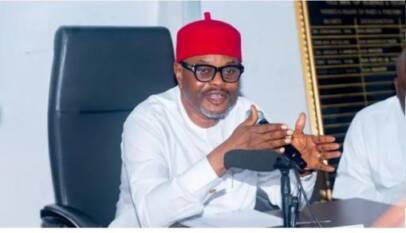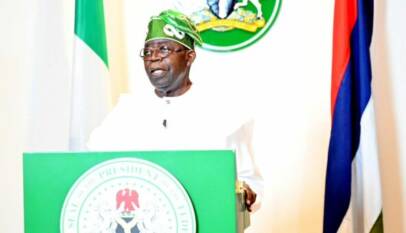By Austin Manekator
He was touted as a political and administrative juggernaut with a clear unambiguous vision of what he wanted and how to achieve it, but In barely a year, President Bola Tinubu’s administration has flipped more times than the recording-breaking American gymnast, Simeon Biles. He has tumbled and stumbled on many appointments that Nigerians are wondering if, indeed, he was the man famously credited with building Lagos.
Tinubu’s administration has gained a reputation for its dramatic reversals of high-profile appointments, sparking debates over his governance acumen, party politics, and decision-making integrity.
Here’s a breakdown of the most notable cases:

Photo: Stella Okotete’s ministerial nomination was withdrawn on ‘security grounds’
A String of Rescinded Nominations:
Stella Okotete: Delta State-born Okotete was a prominent member of Tinubu’s campaign in 2023. She was rewarded with a ministerial appointment, but her nomination was withdrawn when the Senate failed to clear her citing an alleged ‘Security Report’
Nasir el-Rufai: a former governor of Kaduna State and prominent leader of the All Progressives Congress, was also denied clearance by the senate, which faulted his nomination on security grounds.
Danladi Abubakar: another nominee dropped on ‘security ground’. The Taraba State indigene, Okotete and el-Rufai blazed the trail in what would later become Tinubu’s back-and-forth flips on appointment.
Yazid Danfulani: Appointed as Executive Secretary of the Solid Minerals Development Fund/Presidential Artisanal Gold Mining Initiative (SMDF/PAGMI), his role was rescinded hours later. According to presidential spokesperson Bayo Onanuga, the position was not vacant, as Fatima Umaru Shinkafi’s tenure had been renewed due to her pivotal role in reforming the sector.
Imam Kashim Ibrahim Imam: His nomination as Chairman of the Federal Roads Maintenance Agency (FERMA) board was abruptly withdrawn, with no official explanation. The reversal adds to Tinubu’s pattern of recalibrating political appointments to align with shifting priorities.
Asi Oku Okang: Appointed to the Niger Delta Development Commission (NDDC) board to represent Cross River State, his selection was contested on legal grounds. Critics argued he did not hail from an oil-producing area, a statutory requirement. He was replaced by Orok Duke after widespread backlash.
Victor Akinjo: Initially announced as Ondo State’s NDDC representative, Akinjo, a member of the opposition PDP, faced protests from APC loyalists. He was quickly replaced by Otito Atikase in a move to appease party stakeholders.
Maryam Shettima: The influential social media personality was named chairperson of the Nigerian Electricity Management Services Agency (NEMSA). However, her appointment was abruptly cancelled amid public criticism of her qualifications.
Ruby Onwudiwe: Appointed to the Central Bank of Nigeria (CBN) board, Onwudiwe’s nomination faced objections from prominent APC members, who questioned her loyalty and credentials. This led to a swift reversal.
Dr. Magdalene Ajani: Appointed as Permanent Secretary of the Federal Capital Territory Administration (FCTA), her appointment was reversed following protests by FCTA staff, who questioned the legality and fairness of her posting.
Dr. Femi Adekambi: His nomination was quietly withdrawn, adding to the list of administrative reversals that have become a hallmark of Tinubu’s presidency.
Professor Nenibarini Zabbey: In a rare reversal of a reversal, Zabbey was reinstated as Project Coordinator of the Hydrocarbon Pollution Remediation Project (HYPREP). His initial removal drew criticism due to his pivotal role in overseeing environmental cleanups.
Responsive Governance or Governance in Crisis?
These repeated U-turns have triggered widespread debate. While supporters argue that the changes reflect a responsive administration correcting errors, critics see them as evidence of poor planning and political infighting. Many of the reversals stem from intra-party disputes, public protests, or lapses in adhering to statutory or merit-based appointment criteria. No matter what the reasons, critics believe that a serious government should not be scoring own goals at every step it takes. For instance, the ‘security reasons’ cited for the withdrawal of ministerial nominations of Okotete, el-Rufai and Abubakar are indicative of a government that did not do its homework.
The question remains: are these decisions calculated moves in a political chess game, or do they point to deeper governance challenges? One thing is clear: the trend has set the tone for an unpredictable presidency, leaving many to wonder who might be next in Tinubu’s list of appointment reversals.
As Nigerians observe this unfolding drama, the need for a more rigorous vetting process and greater political stability in government appointments has become more evident. The Tinubu administration’s next steps will be crucial in determining whether it can regain public confidence and move beyond its reputation for dramatic reversals.

